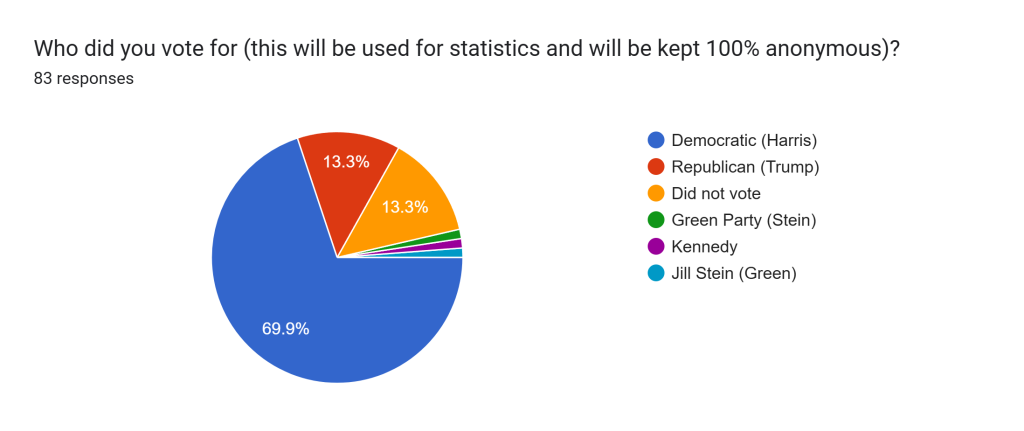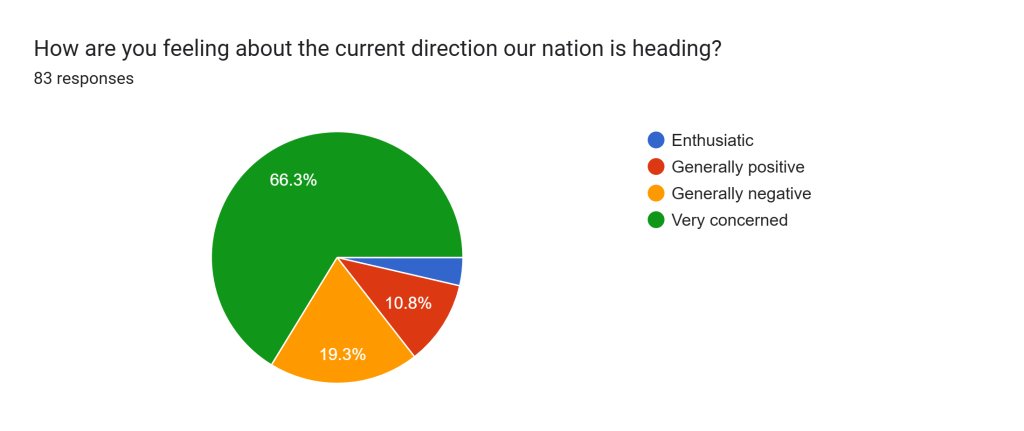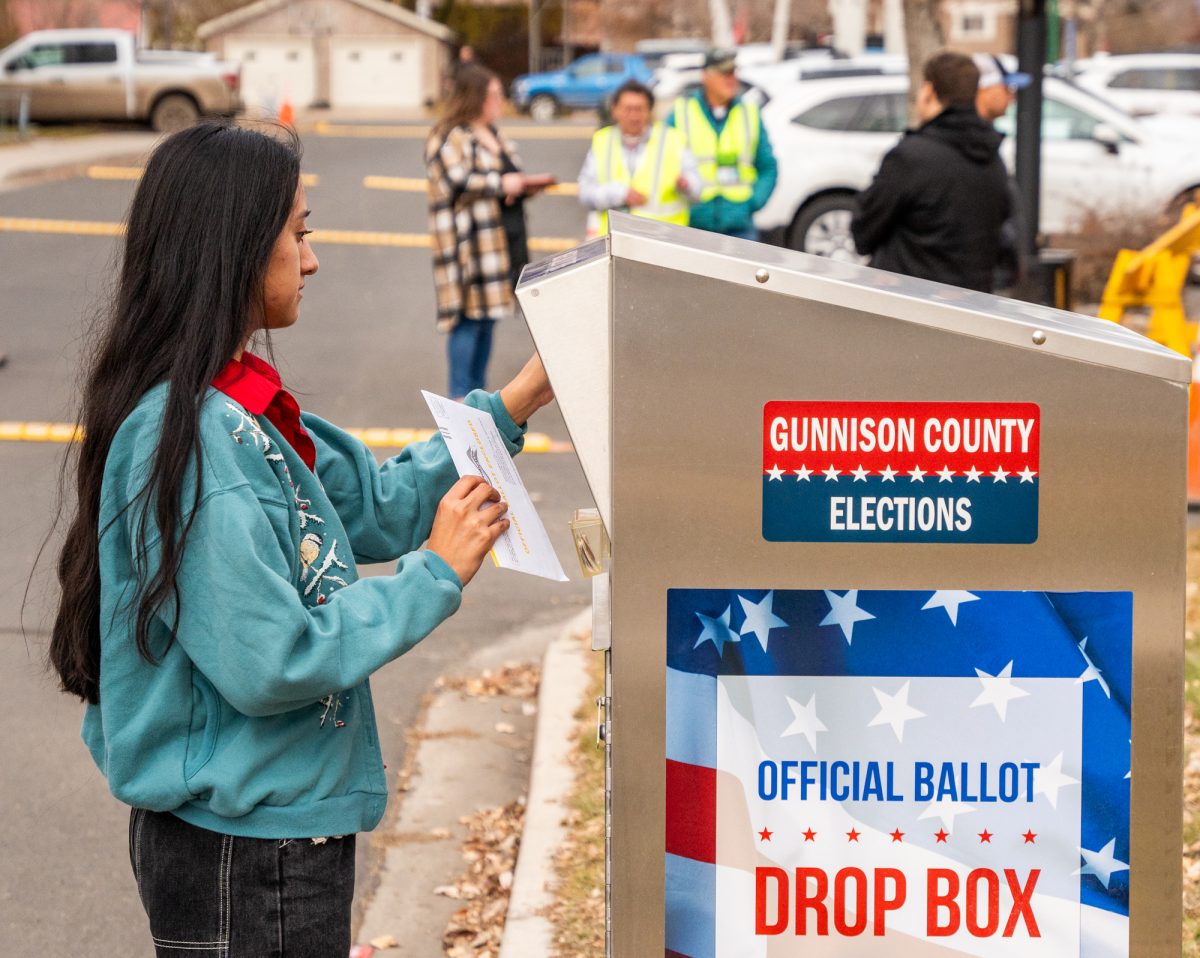In early November, Americans went to the polls to cast their votes, including many Western students, staff, and faculty. Since then, a new president has been inaugurated and we’ve seen many changes to the way our nation operates.
Here at Top O’ the World, we wanted to gauge the opinions of people across campus about the changes, and to give a voice to those who have something to say. We conducted a survey allowing respondents to answer anonymously as some on campus have expressed concern that their voice may no longer be heard. The survey ran from Feb. 27 – March 27.
In fact, the top concern among respondents when given a list of 10 choices was the state of democracy. “We’re marching towards fascism,” wrote one anonymous student. “This is a coup,” and “We’re fucked,” wrote others.
Almost 85 people responded, 70% of whom identified themselves as students; the other 30% was staff and faculty. Seventy percent of responders said that they voted for the Democratic Party (Harris), while 13% said they voted for the Republican Party (Trump), 13% answered “Did Not Vote,” and the other >4% was split between Stein and Kennedy.

One anonymous Western student wrote: “I am concerned for everything from the very rivers that we get our water from, to basic human rights, and to having a legitimate voice in our society. I feel like we’ve seen this behavior before in history and it never ends well.”
Some disagreed. “Relax, Democrats are just as terrible as Republicans. It’s going to be okay,” says one anonymous student.
Another question that we asked responders was how they felt about the current direction our nation is heading. More than 65% of responders answered “Very Concerned,” whereas 3% answered “Enthusiastic.” The other responders voted “Generally Negative” (19%) and “Generally Positive” (10%).

“As a woman I am worried about what will happen to my rights to vote and to my own body,” said Cami Carmody, a Western student. “As a queer person I fear for my fellow queer peers and for the idea that I may not be able to marry the person I love. I fear for my friends who are immigrants in this country who came here to receive new chances.”
This raised an important question: Did people feel as though the nation’s politics would affect life on campus? When asked, more than 60% of responders claimed that they are concerned about politics affecting life on campus; the other almost 40% say they have no concern or that they haven’t seen any changes to campus since the election. However, those who did show concern were mostly worries in regard to education, aid funding, loss of rights, job security, animosity between political factions, and student safety.
This question about the safety of campus post-election raised some concerns, so we also spoke with Dashown Wilson, the head of on-campus security. So far, there haven’t been any threats to campus regarding any prejudices that might be seen pre- and post-election, such as hate crimes, threats of deportation, et cetera. As of right now, campus security’s largest concern is overall surveillance, including installing more cameras around campus. It’s safe to say that at this moment, politics and the results of such politics are not a threat to students and faculty on campus. “I think people are scared, and are carrying that as an additional burden,” says Caitlin Rovner, the Executive Assistant in the President’s Office at Western.
One off-handed comment that we received while gathering information was that people might be too afraid to speak in this political situation, for fear of their jobs, their personal safety, and the safety of others.
The last question from our survey prompted voters to rank current political issues from their personal top priority to their lowest priority. Here are the results:
- First: State of Democracy
- Second: Economy/Cost of Living
- Third: Environment*
- Third: Diversity/Equal Rights*
- Fifth: Education
- Sixth: Abortion/Reproductive Health
- Seventh: Gun Violence
- Eighth: Immigration/Border
*There was a tie for third place between “Environment” and “Diversity/Equal Rights.”
The survey also allowed voters to write in their own top concern. Some included things such as healthcare, Social Security, international relations, and income disparity.

